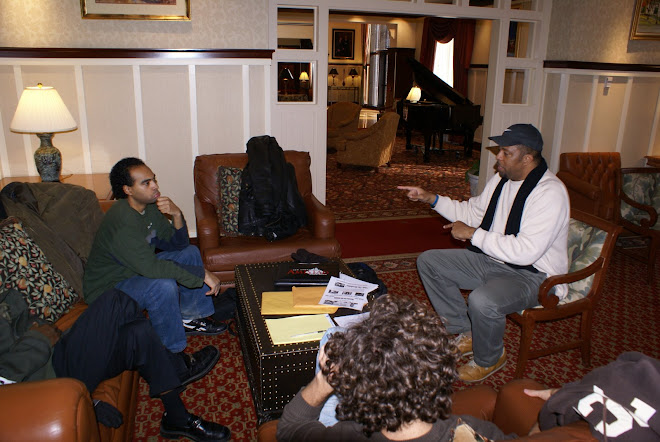
Economy A stronger economy leads to improved health care, better education, higher-paying jobs, and a superior quality of life for almost everyone. However, having a very strong economy does not mean that we have to go through life worrying about environmental problems and longing to buy more and more material things to accumulate. We have an economy so that we can eat, drink, be healthy and happy; so it makes sense that we would also want to focus on whether or not our economy is keeping us satisfied, and whether or not our economy is supporting a sturdy and enduring society for our grandchildren.
If we want to maintain our quality of life and still remain satisfied even during the challenging times that may come in the future, then we need to create true depth in our economy by requiring more local control, interdependence and the sustainable use of resources. By moving beyond simple financial growth as the only ideal, we can find prosperity locally with a return to the days when we grew and consumed more of our food locally, and even generated and used most of our energy locally. By paying slightly more up-front for more durable U.S.-made products we will bolster the economy because things will last longer and we therefore will save resources; environmental costs will be lower by eliminating worldwide shipping and ensuring non-polluting industries; and U.S. workers will have more jobs and better wages because we will buy the goods that our factories make here.
The easiest way to continue building foundations for a strong economy that is also sustainable is to use the power of business, industry and the capital economy to drive improvements in ecosystem and worker productivity, quality and market share – all of which yield better wages and longer-lasting jobs. For years I have worked in the business world solving core problems that drive cost savings and returns on investments that allow companies to grow their business and hire more employees. I have contributed to solutions to complex, long-term problems at many of the world’s largest companies, and I have learned how to listen to the needs and requirements of workers from the factory floor to the boardroom. By applying my business experience in the U.S. Senate I can work for solutions that have proven successes in the real world and can be measured with returns that properly account for all of the costs and reward all participants in the economy.
We are crippling ourselves with an interest payment of almost $1 billion per day on our National debt. With an extra $30 billion every month we can rebuild a lot of the bridges, roads, water and electrical systems that are old and failing. With an extra $90 billion every quarter we could really help to modernize and update schools systems and that pump matching educational money into state coffers as incentives for meeting educational goals. With an extra $350+billion a year we can really begin reparations to the social security program, as well as health care.
The National debt has grown from roughly $5.5 trillion in 2000 to almost $9 trillion in just over 2000 days.This increase of more than 60% in six years is unacceptable even if the Iraq war had been funded completely from debt – its total costs are still under$700 billion – the most expensive war in history.There is another $2.5 - $3 trillion in debt that has been added to our burden. This is due to fiscal irresponsibility, tax breaks for the ultra rich and subsidies for the most profitable industries. I will speak up in the U.S. Senate to keep a constant focus on fiscal responsibility in our Federal budget.
• I will fight to make sure that New Jersey gets there sources we need – including investments in renewable energy and other innovative technology, technology to grow our businesses and create new, higher-paying jobs. In order to attract new investments and new jobs I will work hard in the U.S. Senate to get funding to make sure that New Jersey communities are desirable places to do business by getting Federal support to maintain and update our infrastructure –including highways, bridges and water mains -- to bring new opportunities for economic development.
• New Jersey businesses deserve to have fair access to all international markets and we must have a level playing field for our farmers, workers and labor unions. Free trade does not equal fair trade, and as a U.S. Senator, I will insist that integrated labor,environmental and socioeconomic minimum standards be apart of the trade agreements we negotiate with other countries.
If we want to maintain our quality of life and still remain satisfied even during the challenging times that may come in the future, then we need to create true depth in our economy by requiring more local control, interdependence and the sustainable use of resources. By moving beyond simple financial growth as the only ideal, we can find prosperity locally with a return to the days when we grew and consumed more of our food locally, and even generated and used most of our energy locally. By paying slightly more up-front for more durable U.S.-made products we will bolster the economy because things will last longer and we therefore will save resources; environmental costs will be lower by eliminating worldwide shipping and ensuring non-polluting industries; and U.S. workers will have more jobs and better wages because we will buy the goods that our factories make here.
The easiest way to continue building foundations for a strong economy that is also sustainable is to use the power of business, industry and the capital economy to drive improvements in ecosystem and worker productivity, quality and market share – all of which yield better wages and longer-lasting jobs. For years I have worked in the business world solving core problems that drive cost savings and returns on investments that allow companies to grow their business and hire more employees. I have contributed to solutions to complex, long-term problems at many of the world’s largest companies, and I have learned how to listen to the needs and requirements of workers from the factory floor to the boardroom. By applying my business experience in the U.S. Senate I can work for solutions that have proven successes in the real world and can be measured with returns that properly account for all of the costs and reward all participants in the economy.
We are crippling ourselves with an interest payment of almost $1 billion per day on our National debt. With an extra $30 billion every month we can rebuild a lot of the bridges, roads, water and electrical systems that are old and failing. With an extra $90 billion every quarter we could really help to modernize and update schools systems and that pump matching educational money into state coffers as incentives for meeting educational goals. With an extra $350+billion a year we can really begin reparations to the social security program, as well as health care.
The National debt has grown from roughly $5.5 trillion in 2000 to almost $9 trillion in just over 2000 days.This increase of more than 60% in six years is unacceptable even if the Iraq war had been funded completely from debt – its total costs are still under$700 billion – the most expensive war in history.There is another $2.5 - $3 trillion in debt that has been added to our burden. This is due to fiscal irresponsibility, tax breaks for the ultra rich and subsidies for the most profitable industries. I will speak up in the U.S. Senate to keep a constant focus on fiscal responsibility in our Federal budget.
• I will fight to make sure that New Jersey gets there sources we need – including investments in renewable energy and other innovative technology, technology to grow our businesses and create new, higher-paying jobs. In order to attract new investments and new jobs I will work hard in the U.S. Senate to get funding to make sure that New Jersey communities are desirable places to do business by getting Federal support to maintain and update our infrastructure –including highways, bridges and water mains -- to bring new opportunities for economic development.
• New Jersey businesses deserve to have fair access to all international markets and we must have a level playing field for our farmers, workers and labor unions. Free trade does not equal fair trade, and as a U.S. Senator, I will insist that integrated labor,environmental and socioeconomic minimum standards be apart of the trade agreements we negotiate with other countries.



































No comments:
Post a Comment